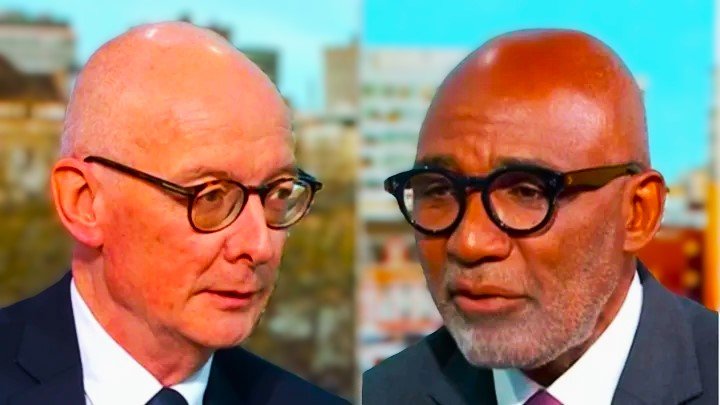
Trevor Phillips Criticizes Labour’s Chaotic Start, Drawing Parallels with Tory Scandals
Veteran broadcaster Trevor Phillips has sharply criticized the Labour Party for what he sees as a “tawdry and chaotic” start to their tenure in office, telling a government minister that their performance thus far has been no better than the Tory administration they replaced. The remarks were made during a heated exchange with Pat McFadden, the Chancellor of the Duchy of Lancaster, on Sky News, following the resignation of Transport Secretary Louise Haigh.
After it was discovered that Haigh had entered a guilty plea to fraud in 2014, she resigned. This dispute is only one of several events that have clouded Labour’s early years in office and cast doubt on the party’s capacity to lead successfully and steer clear of past blunders. In order to cast doubt on Labour’s commitment to a new strategy, Trevor Phillips opened the interview by listing off a series of controversies that have affected the party since they came to power. The lavish hospitality shown to prime ministers, which sparked debate about Labour’s morals, was one of the scandals. There was also the issue of Lord Alli, a Labour donor, purchasing clothing and eyeglasses for Keir Starmer and his spouse, only to be granted a security pass to Downing Street afterwards.
Sue Gray, a former senior civil servant who had been hired to play a crucial part in the functioning of the new government, was also fired as part of the list. The collection of these occurrences revealed a party grappling with the same problems of accountability and openness that had beset the Conservatives Trevor Phillips challenged McFadden during the interview, pointing out that Labour had criticized the Tory government for its chaotic governance and lack of morals throughout its years in opposition. Trevor Phillips contended that the scandals and controversies that plagued the Tories had also plagued Labour’s early performance. Trevor Phillips cited well-known instances like senior Labour leaders receiving Taylor Swift tickets as gifts.
As proof that Labour was not fulfilling its pledges of reform, the party’s head of staff was fired within six months of the purchase of pricey suits and gowns, Trevor Phillips reminded McFadden, “You were in opposition for four years, always complaining about Tory chaos and moral failings.” “You pledged a new strategy, a departure from the status quo. However, what have we observed? We’ve seen your chief of staff leave within six months, along with Taylor Swift tickets, suits, dresses, glasses, and No. 10 passes. What distinguishes you from your forebears in any way?
In response, McFadden rejected the analogy and said that Labour had taken prompt action to resolve the Haigh issue. “The Louise Haigh problem was resolved quickly after it was discovered.Within hours, Louise resigned, and the matter was settled by day’s end. There was no dragging on, no delay. In less than a day, we appointed a new transport secretary. That stands in stark contrast to the Conservatives. McFadden maintained that errors were common and that the main distinction was the way the Labour government handled the situation. He maintained that their swift response in the Haigh case showed a degree of responsibility and proficiency that had been absent from the previous government. In contrast to the Tories’ propensity to let crises linger, McFadden’s response appeared to indicate that the Labour Party was dedicated to handling controversies quickly and forcefully.
McFadden made some reasons, but Trevor Phillips wasn’t convinced. Trevor Phillips reminded McFadden that the public would be keenly observing to see if Labour could actually provide something fresh, and he insisted that the mounting list of scandals ran the risk of damaging the party’s reputation. Even though Haigh’s resignation was handled swiftly, it was only the most recent in a series of scandals that pointed to a dysfunctional government.Many observers saw the exchange as a reminder of the wider difficulties Labour faces in gaining public trust. Notwithstanding the pledges of reform, the party’s early years in office have been tainted by a number of errors that have raised questions about its capacity to form a government that differs significantly from the one that was in place before.
The public’s opinion of Labour will probably be influenced by the ongoing controversies, even though McFadden and other Labour officials will continue to emphasize that the promptness with which they handled Haigh’s resignation demonstrates a commitment to a higher standard of governance. The party is currently under a lot of scrutiny, and whether it can meet the expectations of those who voted for change will depend on how well it handles these initial difficulties. Going forward, the Labour Party will need to prove that it is genuinely dedicated to a government that places a high value on competence, honesty, and openness rather than just being able to respond swiftly to scandals.